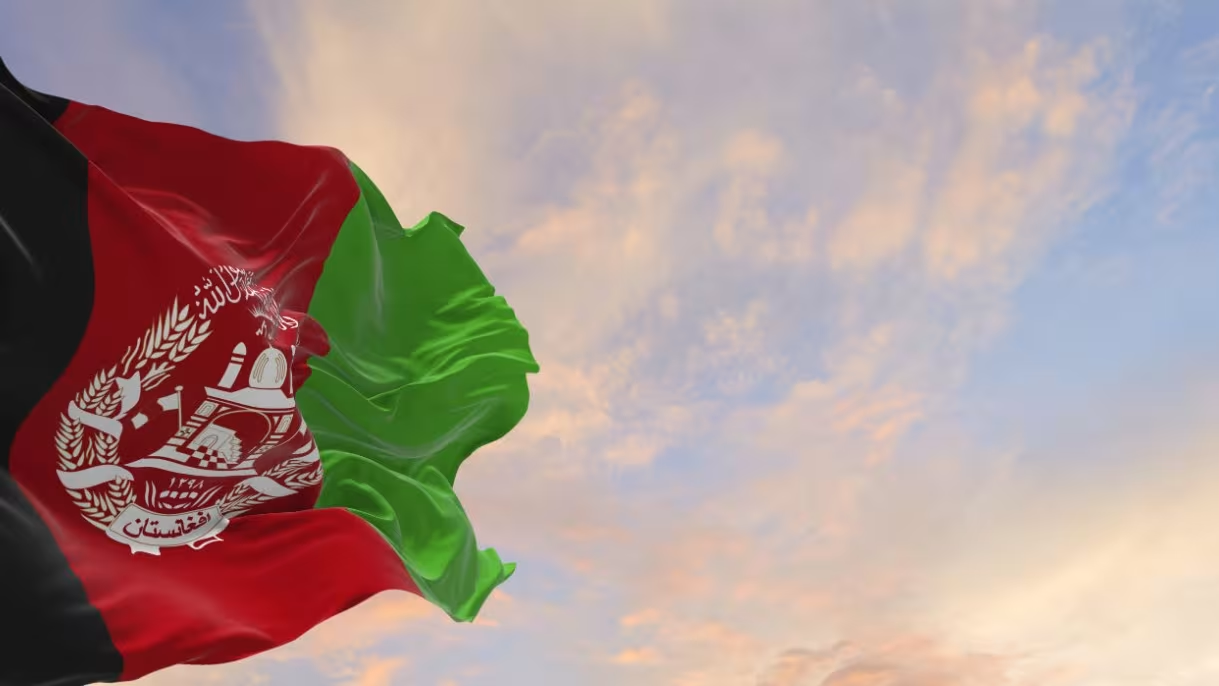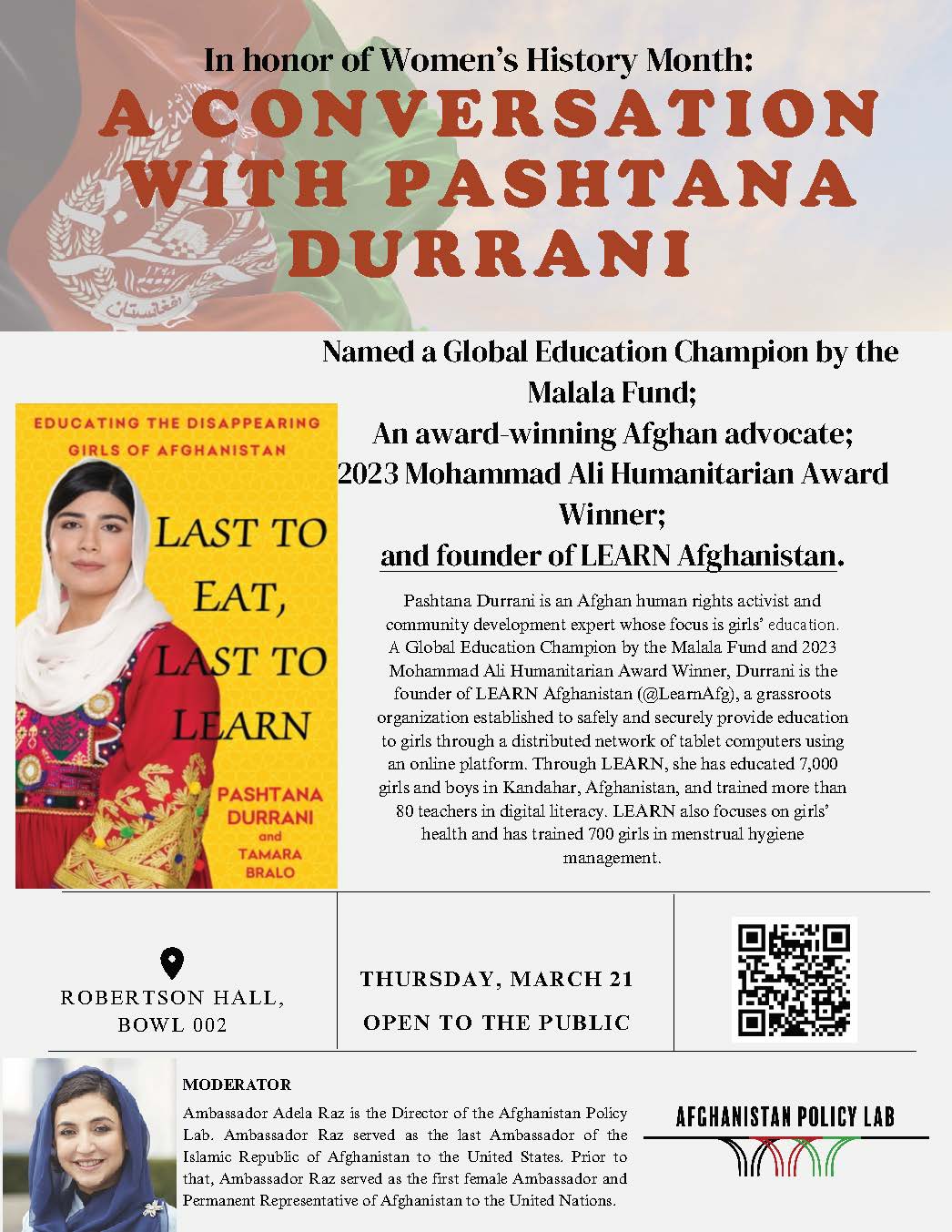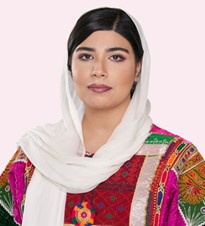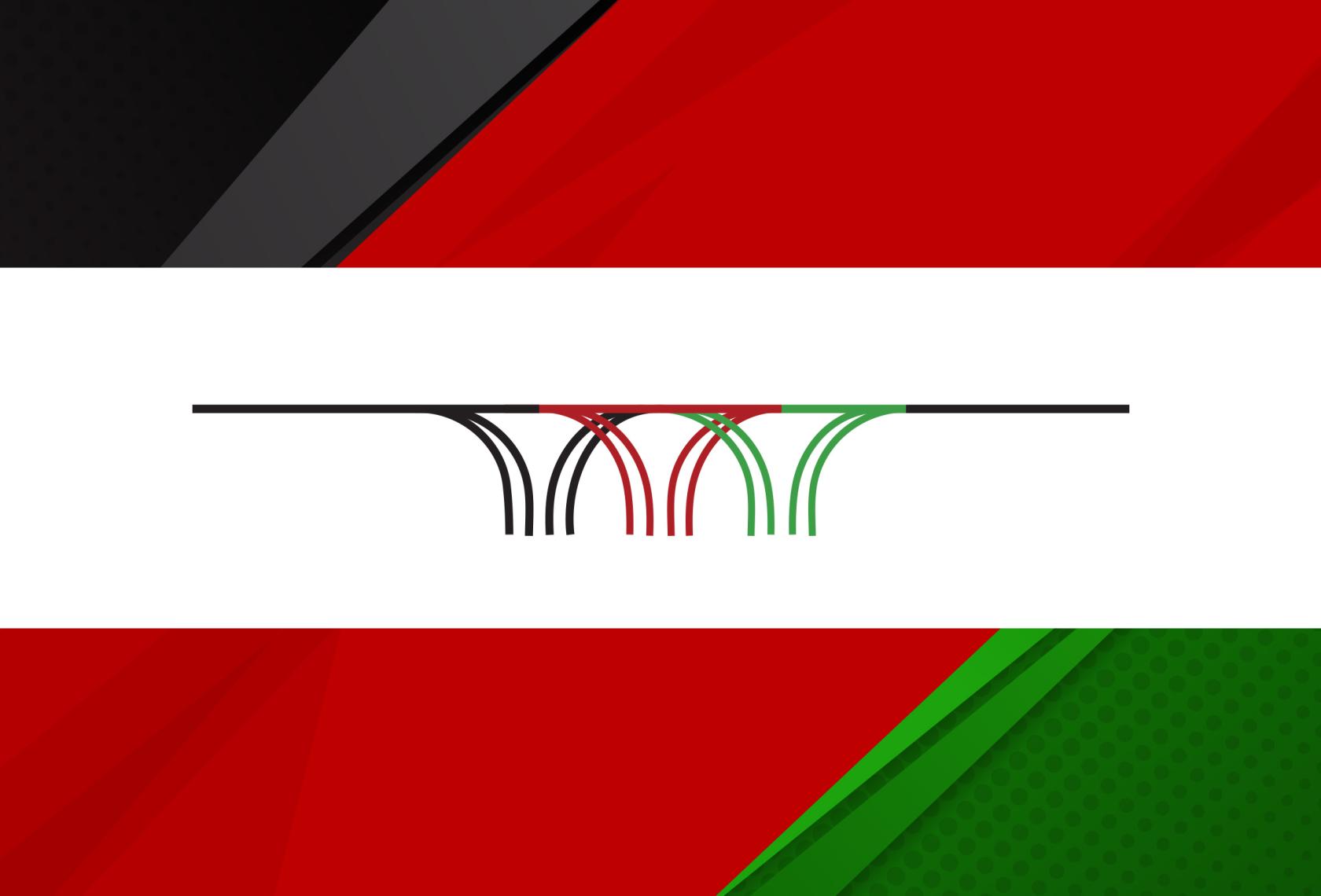

A Conversation With Pashtana Durrani: A Global Education Champion by the Malala Fund; An award-winning Afghan advocate; 2023 Mohammad Ali Humanitarian Award winner and founder of LEARN Afghanistan.

The Afghanistan Policy Lab at the Princeton University School of Public and International Affairs is hosting Pashtana Durrani to honor Women’s History Month. The conversation will be moderated by Amb. Adela Raz, and will cover the topics:
• Pashtana’s Life journey living as a woman in Afghanistan.
• Her role in educating Afghan girls and women, and
• The current situation of girls in women in Afghanistan.
She will let the audience know about her initiative LEARN Afghanistan, through which she helps thousands of girls and women across Afghanistan in the areas of health, education, and humanitarian assistance. She will talk about her book LAST TO EAT, LAST TO LEARN: My Life in Afghanistan Fighting to Educate Women (Feb. 20, 2024) is a stirring and engaging call to action by a remarkable young woman. Her book is aptly named, as Pashtana reminds us that in her home country, women come last in nearly every aspect of society. Here she shares the arresting, often shocking story of her journey from refugee to activist and catalyst for global change.
She will shed light on her current struggles to educate girls and women in Afghanistan as the Taliban excluded women from different spheres of society after the gained power in August 2021. Currently, the Taliban’s strict restrictions on women banning them from schooling and work is a dilemma and if not addressed it will lead to an educated future generation of women, migration and more conflicts.
The session will include active engagement with students in questions and answers sessions to allow the students to ask questions on multiple topics.
APL has been continuously organizing events inviting prominent women from in and outside Afghanistan to talk about their struggles, the influence they had made in their society, and lessons for the people especially women outside Afghanistan. Afghanistan has been going through a crisis confronted with multiple challenges.
Guest Speaker

Pashtana Durrani (Boston, MA) is an Afghan human rights activist and community development expert whose focus is girls’ education. Durrani is the founder of LEARN Afghanistan (@LearnAfg), a grassroots organization established to safely and securely provide education to girls through a distributed network of tablet computers using an offline platform. Through LEARN, she has educated 7,000 girls and boys in Kandahar, Afghanistan, and trained more than 80 teachers in digital literacy. LEARN also focuses on girls’ health, and has trained 700 girls in menstrual hygiene management.
Ms. Durrani was named an Education Champion by the Malala Fund for her outstanding work to advance Afghan girls’ education. She was a global youth representative for Amnesty International and a board member of the steering committee for the Global Environment Facility, an international partnership to address pressing environmental concerns. She is also a winner for the 2021 Tällberg-SNF-Eliasson Emerging Leader prize, which recognizes leaders who have addressed complex global challenges in innovative ways. Her outstanding work placed into The BBC’s 2021 Most Influential Women list, as well as the 2021 #Times100talks. Learn more at www.learnafghan.org.
Moderator

Ambassador Adela Raz is the Director of the Afghanistan Policy Lab. She served as the last Ambassador of the Islamic Republic of Afghanistan to the United States. Prior to that Amb. Raz served as the first female Ambassador and Permanent Representative of Afghanistan to the United Nations.


